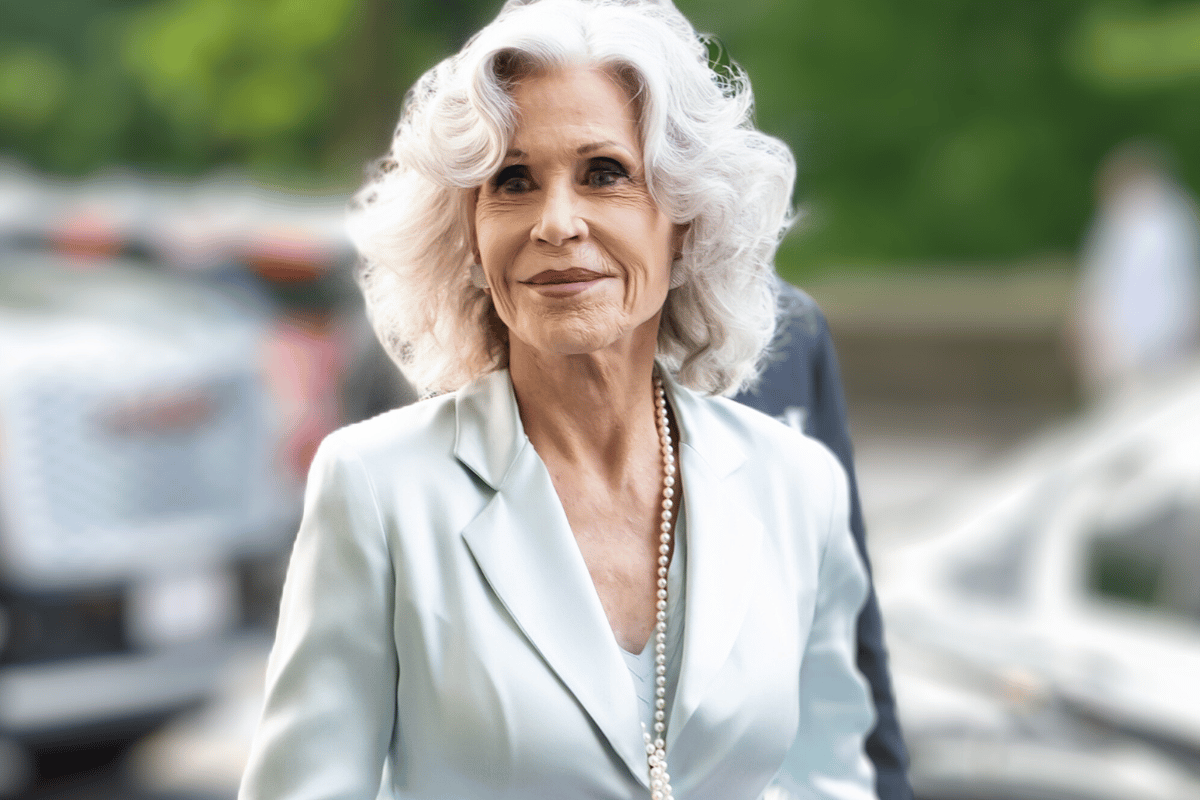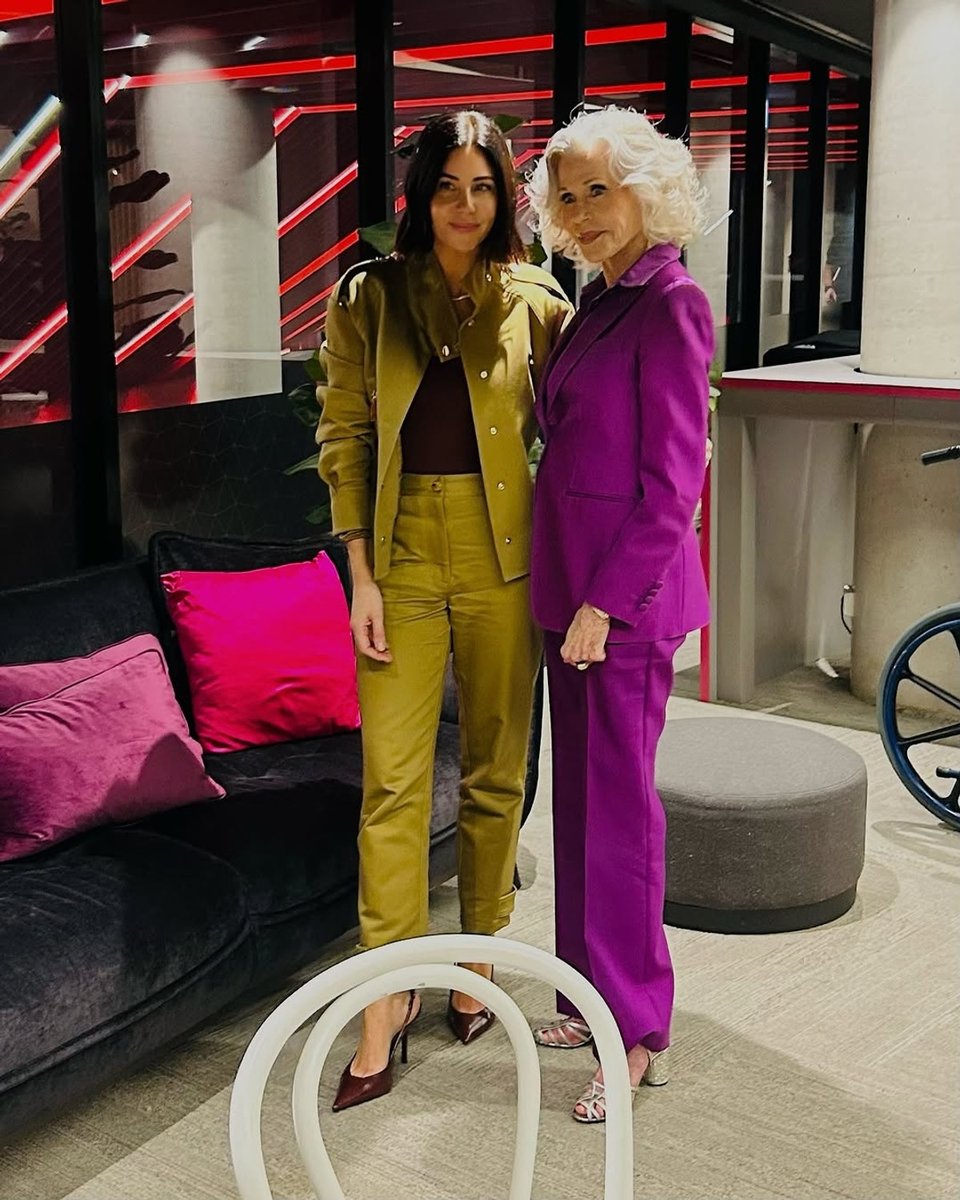
I went to see Jane Fonda to feel something. That's what she's always done, made you feel something. For some, awe. For some, anger. Others, admiration. Occasionally, envy. Possibly the urge to buy a leotard and do leg lifts on a shag rug. Jane Fonda is one of those women who has lived many lives and all of them publicly: protestor, movie star, workout prophet, ex-wife (a few times), mother and icon (reluctantly).
Listen to our interview with Jane Fonda on YouBeauty here. Post continues below.
So yes, I expected to be galvanised. I expected poise. I expected fire.
What I didn't expect was that, 87 years into being Jane Fonda, Jane Fonda would admit she's still trying to become Jane Fonda.
She walked onto the stage at the ICC Sydney for Wanderlust True North with journalist Liz Hayes in front of 5,000 of us, looking exactly how you want Jane Fonda to look: like an ad for being 87 and very rich and very experienced and very good at choosing the right shade of purple.
The crowd sat taller. The lighting softened. We collectively prepared to be told how to be braver, bolder, better.
Instead, she tells us she only recently started therapy again.
Why? To learn how to love her children more.
And now I'm crying into my plastic cup of rosé.
There's something uncanny about hearing a woman who's been arrested for her convictions, who, frankly, made being political sexy, say: "I wasn't such a great person early on in my life. I was unhappy. I didn't have any meaning."































































































